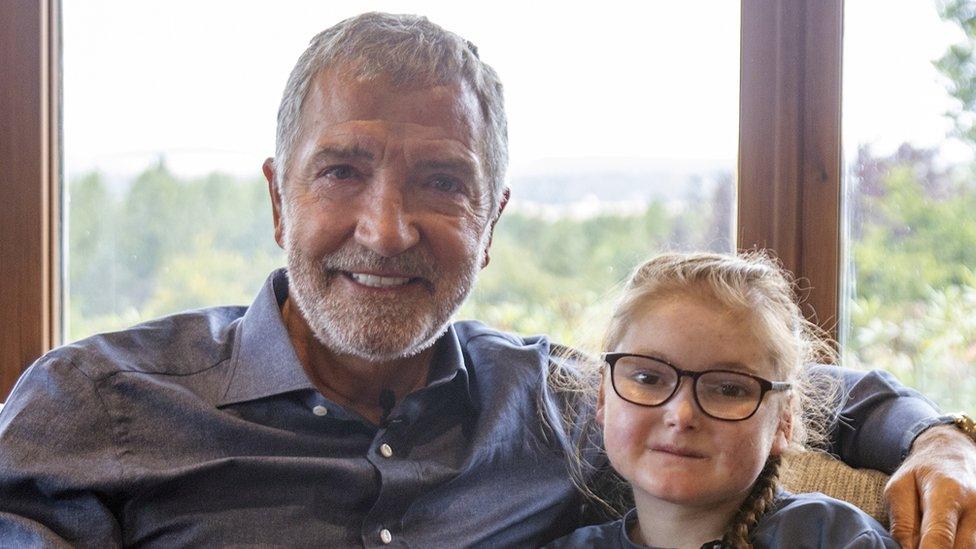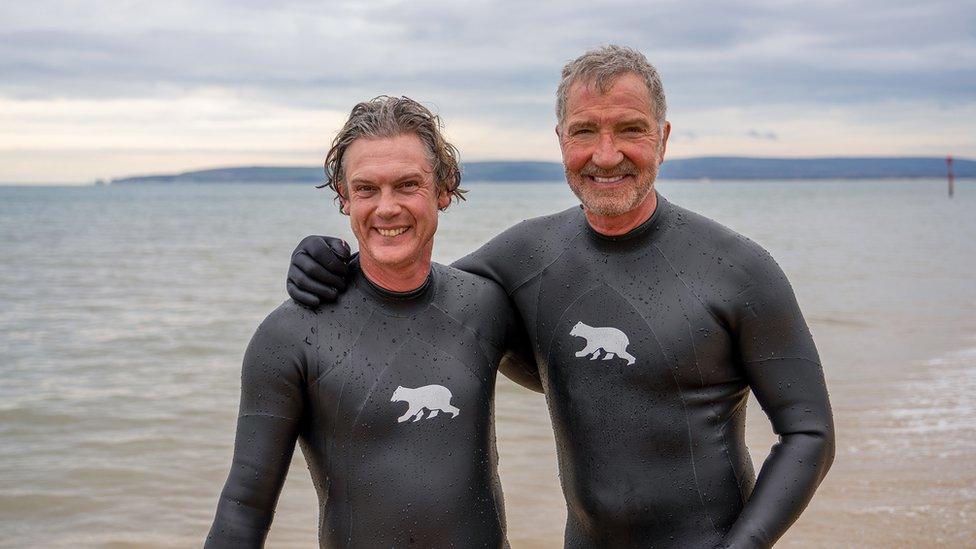Graeme Souness: Football legend to swim Channel for 'butterfly skin' girl
- Published
Souness explains why he's swimming the English Channel
Football legend Graeme Souness plans to swim the English Channel to help people living with a rare skin condition.
The former Liverpool, Rangers and Scotland player fought back tears as he told the BBC that Epidermolysis bullosa was the "cruellest disease out there".
He was inspired to take on the 16-hour challenge after meeting Isla Grist from the Scottish Highlands.
The 14-year-old's condition, known as "butterfly skin", causes the skin to tear or blister at the slightest touch.
The 70-year-old former player and manager choked back tears as he described Isla as "the most unique person I've ever met".
Speaking on BBC Breakfast, he said: "She does this to me every time. She's an inspiration to me - even at my age."
The former TV pundit is aiming to raise £1.1m for the Debra charity, which supports Isla and about 5,000 people in the UK who currently live with the genetic condition. There is no cure although mild forms may improve with age.

Graeme Souness says he and Isla have become firm friends over the years he has known her
Isla, from Black Isle, near Inverness, has had her condition since birth and has to be wrapped head to toe in bandages. These are changed three times a week in a procedure that is extremely painful for her.
Souness said he first became aware of the disease about five years ago. He said he had now become "mates" with Isla, whose courage was an inspiration to him.
"This disease... it's the cruellest, nastiest disease. For someone so young to be so brave... and Isla's aware of the impact this has on her mum and dad and she helps them," he said, clearly struggling with his emotions.
"This is a very special young lady you're in the company of, she really is, and I am… she gets me in tears every time I'm in her company."
The teenager's father Andy will swim alongside Souness and four other team members on the 21-mile journey from England to France, scheduled for 18 June.

Graeme Souness has been training with Isla's father Andy for the charity swim
The pair are raising money for Debra's A Life Free of Pain appeal, which it is hoped will help pay to clinically test drug treatments that could improve the quality of life for people with butterfly skin.
Andy described epidermolysis as a "brutal" condition.
He said: "It's hard for Isla, the blisters she's got all over her body and the raw skin. Up to half her body is not covered in skin.
"It not only affects the external parts of the skin you can see, it affects the internal linings as well and that's blistering and tearing of the skin inside your throat and the like and it's relentless. It just doesn't stop."
Isla described how, as well as drug treatment, she uses various techniques to take her mind off the constant pain and discomfort.
"Watching TV for me - distraction is a big part of my everyday life because it does distract me and I can go into another dimension and…not get away from it but distance sometimes," she said.
Her father said the fundraising could be used to find ways of using existing drugs because this might be a quicker route for providing some relief.
"We are desperately looking to progress research into repurposing drugs and some of the money we'll raise hopefully through the swim is repurposing existing drugs that are licensed to the NHS and seeing if they have therapeutic benefits for EB sufferers," he explained.
"It usually takes many many years and billions of pounds to bring a drug to market. These are already licensed."